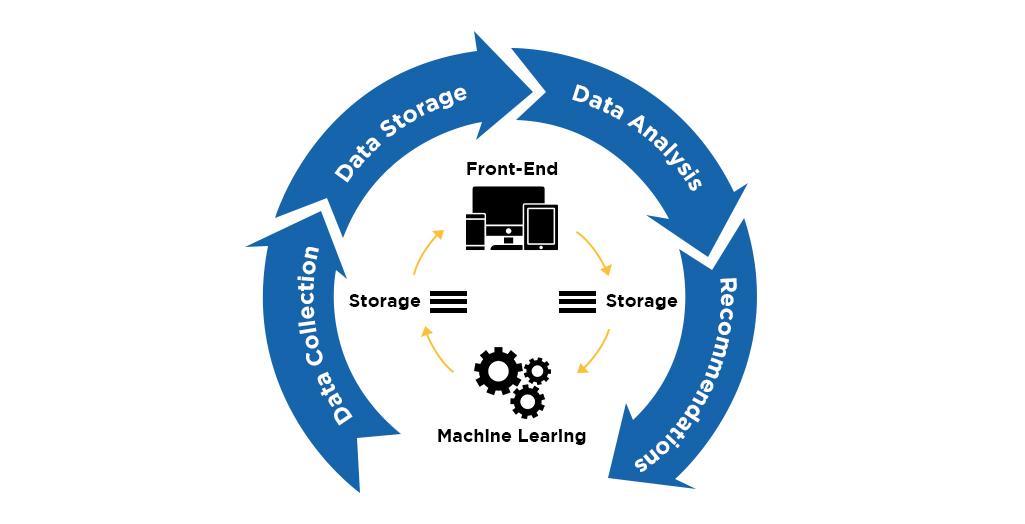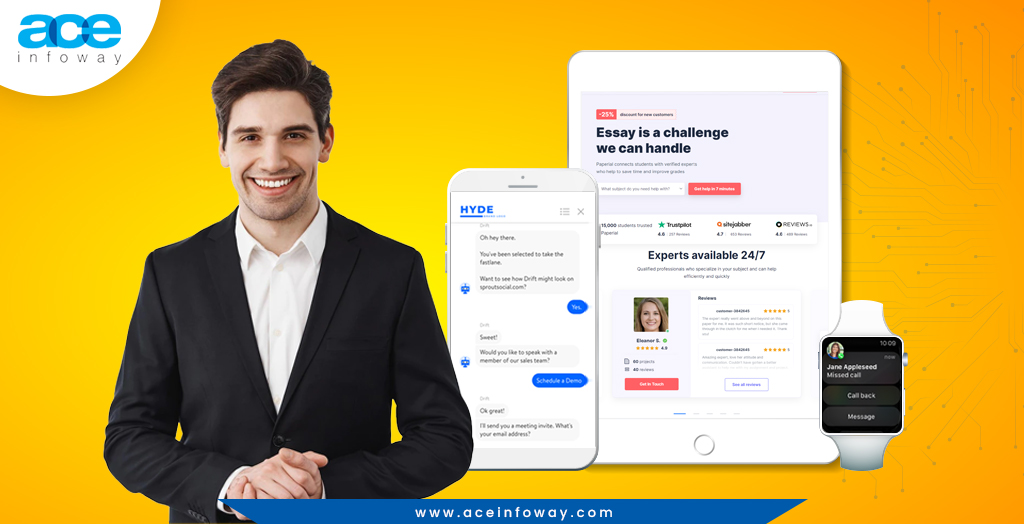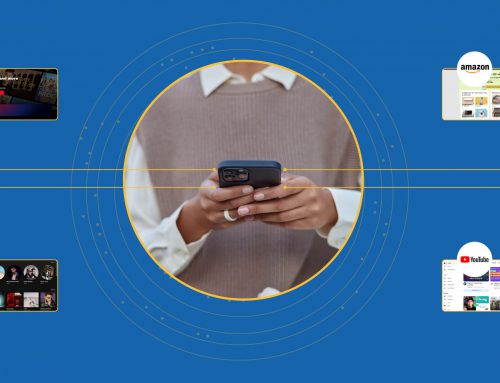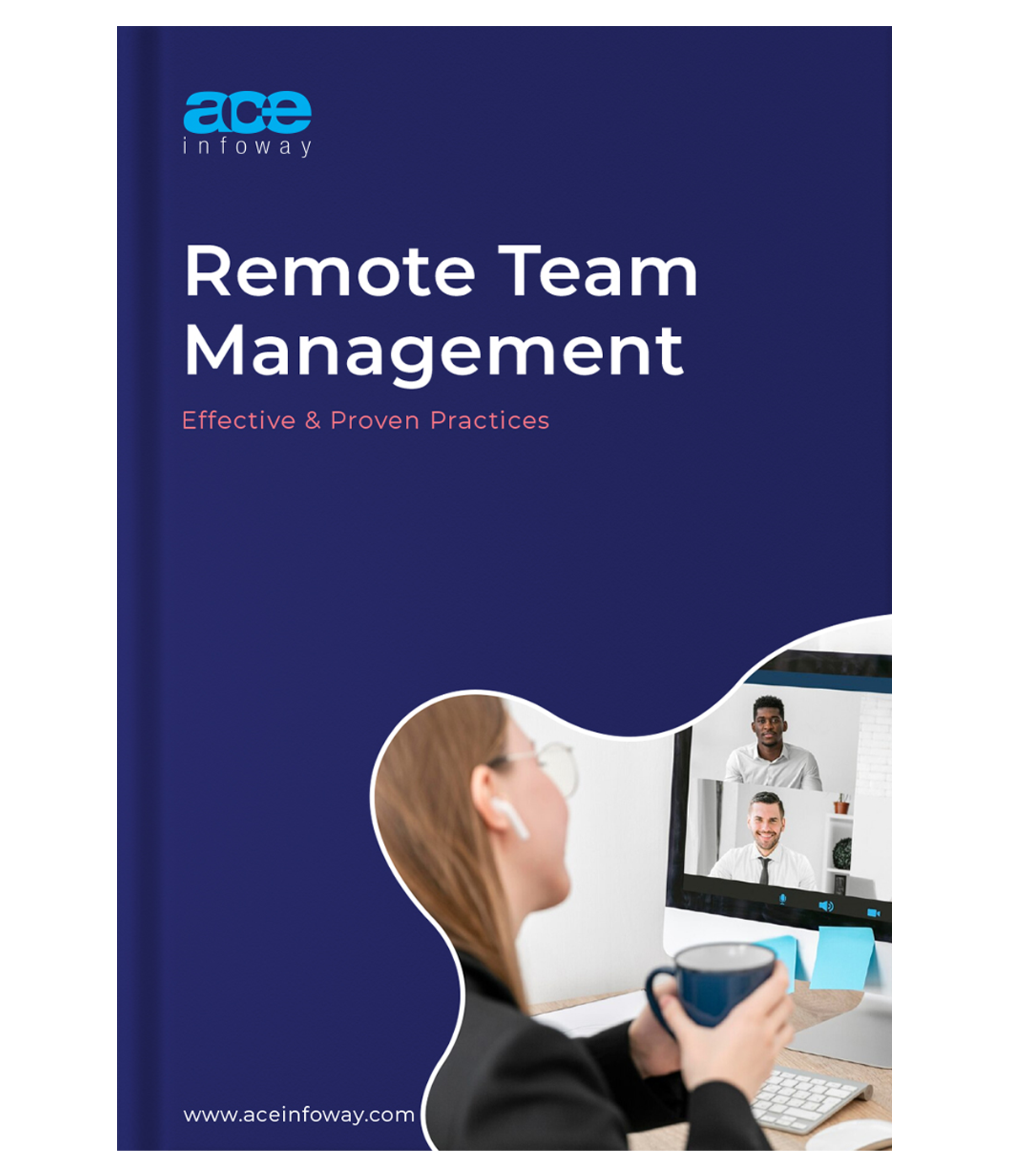Table of Contents
We are privileged to technological advancements leading us to have access to vast amounts of information and options, from choosing the perfect movie to watch on a streaming platform to finding the ideal product on an eCommerce site. This is where the recommendation engine steps in leveraging the insights from machine learning, transforming how we discover content and products tailored to our individual preferences without getting confused with the availability of choices.
As per McKinsey, 67% of consumers expect relevant product or service recommendations and 71% of consumers are more likely to purchase from businesses offering personalized services.
Recommendation engine algorithms empower businesses to make tailored offerings to individual preferences, driving higher customer satisfaction, loyalty, and revenue. By delivering targeted promotions and optimizing marketing strategies, businesses can maximize effectiveness and stay competitive in the market, fostering sustainable growth.
In this blog post, we delve into the fundamentals of recommendation engine algorithms, the different approaches and methods, and the impact of machine learning with recommendation engines on business and customer experience.
What is a Recommendation Engine?
A recommendation engine is a type of information filtering system that predicts the preferences or interests of users and provides personalized recommendations based on existing data, past purchases, user behavior, historical data, and browsing history generating suggestions tailored to each individual’s preferences. Recommendation engines are a branch of machine learning that is widely used in various online platforms such as eCommerce websites, streaming services, social media platforms, and content aggregation sites to enhance user experience, increase engagement, and drive sales.
There are 3 main types of recommendation engines:
- Collaborative Filtering
- Content-based Filtering
- Hybrid Recommender Systems
1) Collaborative Filtering: Collaborative filtering is a recommendation approach that utilizes user-item interaction data to make personalized suggestions. It identifies similarities among users or items based on past interactions and predicts user preferences by considering similar users’ behaviors. This technique can be user-based or item-based, recommending items either by finding similar users or similar items to those previously interacted with. Collaborative filtering is widely used across various domains, including e-commerce and entertainment platforms, to enhance user experience through personalized recommendations.
2) Content-based Filtering: Content-based filtering recommends items to users by analyzing item attributes such as keywords or metadata, rather than relying on user behavior. It creates user and item profiles based on these attributes and suggests items similar to those the user has interacted with before. This method is effective for domains where item features strongly indicate user preferences, such as recommending articles, movies, or products based on their specific attributes.
3) Hybrid Recommender Systems: Numerous recommendation systems adopt a hybrid strategy integrating collaborative and content-based filtering methodologies. This fusion can occur through various methods. The mixed hybridization method entails presenting users with recommendations derived from both collaborative and content-based filtering simultaneously. In contrast, the weighted technique merges the scores obtained from the two distinct approaches. Another integration method, known as meta-level, involves utilizing the output of the initial approach (typically a machine learning model generated by algorithms) as an input for the secondary approach.
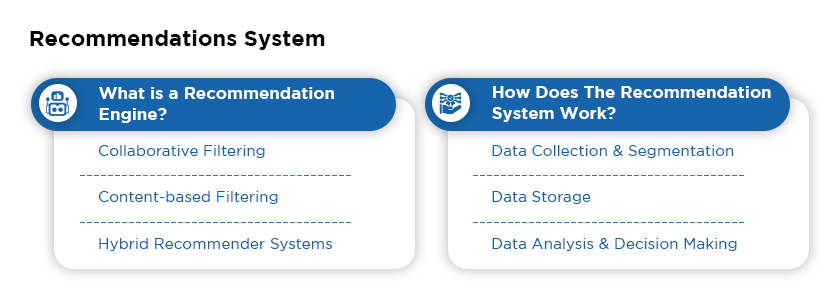
How Does The Recommendation System Work?
ML-driven recommendation systems, whether employing collaborative or content-based filtering, typically adhere to a multi-stage pipeline to transform product and customer data into personalized recommendations. It can be divided into 3 stages:
- Data Collection & Segmentation
- Data Storage
- Data Analysis & Decision Making
1) Data Collection & Segmentation: To effectively segment customers, a machine learning system requires substantial datasets. These datasets are utilized to categorize customers into distinct archetypes or buyer personas based on various attributes. The system analyzes metrics such as browsing behavior, purchase history, content usage, personal details from user profiles, product reviews, and device preferences. This information is collected through explicit or implicit means, while product attributes can be derived from associated tags.
2) Data Storage: Depending on the type of data required for analysis, datasets should be consolidated into an appropriate repository. Traditional SQL databases efficiently store structured data, while NoSQL databases handle complex formats like unstructured data. Data warehouses integrate information from various sources for analysis, while data lakes serve as flexible repositories capable of ingesting any data format.
3) Data Analysis & Decision Making: The recommendation system utilizes machine learning algorithms to analyze datasets, detect patterns, and uncover correlations among multiple variables. These algorithms enable the system to build ML models that represent these patterns. For instance, algorithms may uncover a consistent relationship between customer age and brand preference. Trained models can then predict user preferences and recommend the most appropriate products or content. Companies rely on these recommendations to make informed decisions.
Application and Benefits of Recommendation Engines
| Application | Benefits |
|---|---|
| eCommerce |
|
| Content Streaming Platforms |
|
| Education |
|
| Entertainment |
|
| Travel Industry |
|
| Video Streaming |
|
| Retail Industry |
|
| Gaming Industry |
|
| Financial Services |
|
| Health & Fitness |
|
| Medical Industry |
|
| Real-estate |
|
How Recommendation Engines Empower Businesses?
Recommendation engines empower businesses with data-driven insights, facilitating informed decision-making and driving growth strategies. These engines offer valuable insights into market trends, product performance, and customer sentiment by analyzing customer behavior and preferences. Utilizing this information, businesses can refine marketing strategies, innovate new products, and customize offerings to meet changing customer demands.
Furthermore, recommendation engines aid in customizing marketing initiatives by delivering precise promotions and advertisements to distinct customer segments, thereby amplifying the impact of marketing strategies, boosting revenue, and streamlining workflow to increase productivity. In a nutshell, recommendation engines enable businesses to maintain competitiveness in the contemporary data-driven market by harnessing customer insights to refine operations, elevate customer satisfaction, and drive business growth.
Challenge
Ensuring scalability is crucial when developing a recommendation system, as it must efficiently handle growing datasets. If initially designed for a limited dataset, the system may struggle with growing computation costs as the data volume increases. To avoid the need for a costly rebuild in the future, it’s essential to architect the system from the initial stage with scalability in mind, capable of accommodating expected growing data volumes.
Furthermore, recognizing that individuals’ preferences keep evolving is crucial. It is important to anticipate and understand the dynamic nature to ensure the recommendation system’s accuracy. Likewise, a recommendation system should continually refine its recommendations as users interact with content and more data becomes available. An adaptable system that fails to evolve risks becoming outdated and ineffective in fulfilling its purpose.
What’s Next?
The challenges can be mitigated with meticulous planning and strategies right from the initial stage of recommendation engine development. Traditional recommendation engines have been available for a long time, continually evolving in complexity and efficiency, particularly restructured and refined by retail and content experts. However, what’s next? What are the latest trends and advancements that businesses should embrace to develop truly groundbreaking systems?
Context-awareness
Context-aware recommendation systems emerge as a burgeoning field of exploration and study, aiming to offer even more precise content tailored to the user’s specific context at any given moment. Factors such as the user’s location, device type, time of day, and activity level are considered to deliver recommendations that align closely with the user’s immediate needs and preferences.
Deep Learning
Deep learning has already revolutionized recommendation systems by major players like YouTube, Spotify, Netflix, Amazon, and others. As the volume of data expands exponentially and businesses struggle with vast repositories of content, deep learning is poised to become the standard methodology not only for recommendation systems but also for addressing a wide array of learning problems.
Cold-start Problem
Addressing the cold-start problem is another area of focus for cutting-edge researchers and developers. This entails developing strategies to make recommendations for items with limited data, crucial for businesses with frequently changing content inventories. By proactively addressing this challenge, businesses can effectively promote items with high sales potential even before their performance is fully known.
Conclusion
Utilizing recommendation systems can serve as a powerful tool to make users reach content, products, and services they might not have discovered manually, thereby facilitating broader business objectives such as boosting sales, advertising revenue, or user engagement. However, achieving success with recommendation systems depends on several crucial factors.
Rejuvenate your business with a recommendation engine to enhance user engagement, increase revenue, and make your business reach new heights of success and quality. Contact our data experts for right-way consultation for your ideas and concepts related to recommendation engines. Collaborate with our experienced team to develop robust recommendation engine, driving your success and growth by leveraging the complete potential of machine learning solutions and data science.









